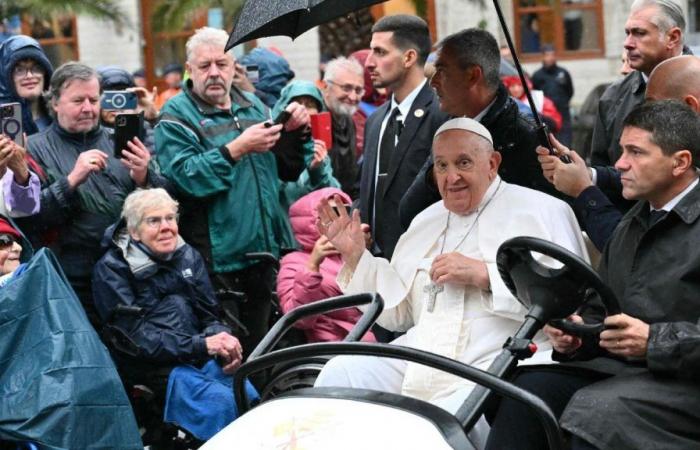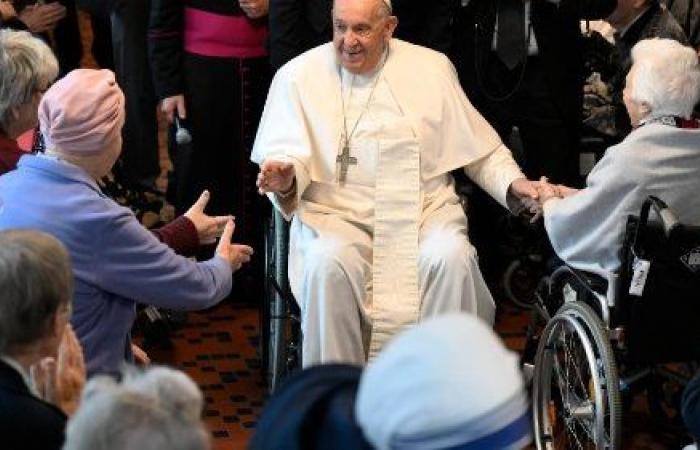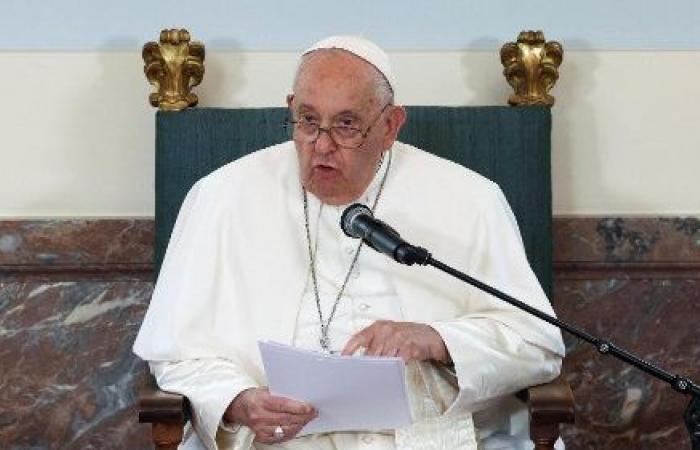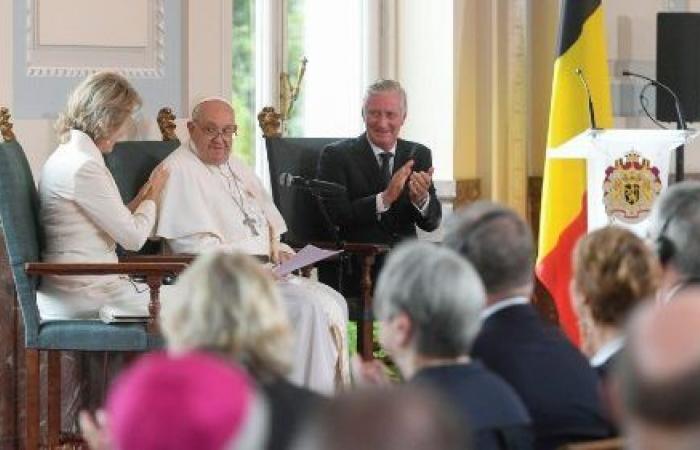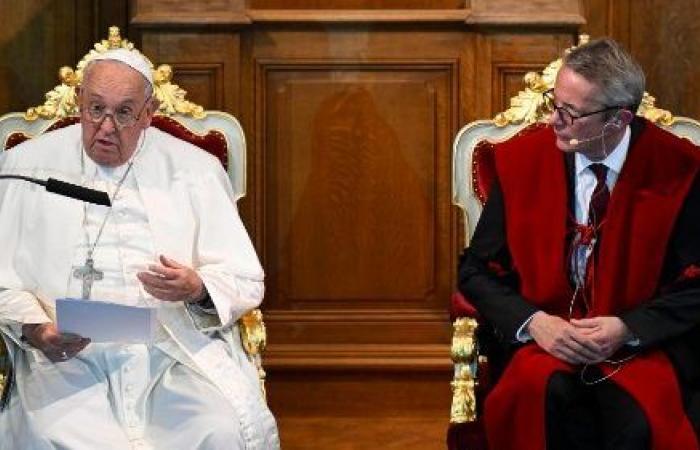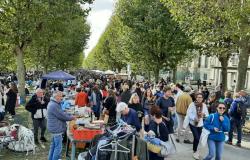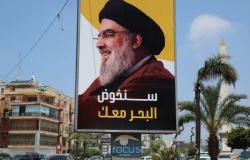Pope Francis meets this September 28 with the bishops, priests, deacons, seminarians, consecrated persons and pastoral agents of Belgium as part of his 46th apostolic journey. For the Bishop of Liège, Mgr Jean-Pierre Delville, the Pope’s visit is a “truly exciting event”, which will allow “a dynamic breath” to be given to the Church of Belgium.
Interview conducted by Xavier Sartre – Special correspondent in Belgium
It is in the impressive setting of the Basilica of the Sacred Heart of Koekelberg, north of Brussels, the fifth largest church in the world, that Pope Francis will meet this Saturday morning with bishops, priests, deacons, seminarians, consecrated persons and pastoral agents of Belgium. Present as Bishop of Liège, Mgr Jean-Pierre Delville.
Interview with Mgr Jean-Pierre Delville, Bishop of Liège.
What is the state of mind of the Belgian bishops before this visit by Pope Francis?
The state of mind is confident because we feel the Pope’s visit as a dynamic breath that he will give to the Church of Belgium. In this sense, therefore, the episcopate perceives the visit of the Holy Father as a truly exciting event.
Certainly, the Church of Belgium has been affected by cases of pedophilia, especially on the Flemish side, because of the television programs which were broadcast exactly a year ago and which highlighted the suffering of the victims. This also led to reactions in the press and led to the creation of a parliamentary commission of inquiry into the experiences of the victims and the action of the Church to be able to welcome the victims. Obviously, public opinion was greatly stirred and this created distrust of the Church in general.
At the same time, as we have also highlighted the reactions of the Church, the points of contact for victims, the therapy projects that the Church wants to help support, we also see that there are resilience in relation to this situation and that the Pope’s visit encourages us to work for renewal in our Church.
Do you think the Pope’s visit can help heal the wounds caused by abuse?
I think it contributes because the Pope is going to meet fifteen people who are victims of abuse. They also carry questions and testimonies from other victims. François wants a personalized meeting and not a meeting in a large assembly. In that sense, I think it is important from a symbolic point of view, to show concern for the victims. And it is also important, inevitably, as a witness of the local Church for all of society.
Supporting victims, in fact, is a very long-term affair and this is somewhat what the broadcasts revealed: people who were traumatized 30 or 40 years ago often remain so, for lack of to have had good support in general or to have been able to afford it or find it. We realize that the question of diligent support is truly an essential question to enable healing.
And there, of course, the visit of the Holy Father will not solve everything, but it can give impetus and credibility to initiatives that will go in this direction.
You are also an episcopate which must face a secularized society, very secularized, which, on social issues and in particular the end of life among others, is very liberal, very progressive. What do you expect from this point of view, from the Pope’s visit? Support, comfort in your positions in the face of a society which, perhaps, no longer understands your positions?
The Pope’s visit raises the question of faith and therefore the fundamental question of the Christian approach in today’s society. We are discovering that this is a question that is being asked again among young people. We noticed that last year we had a huge increase in the number of baptisms of adult and often young adult catechumens.
There is therefore an interest in the Christian faith in a society which, in fact, is losing its bearings or which is prey, whatever I know, to drugs for example, or prey to fears. in relation to the future, particularly environmental issues. There is therefore a renewed interest in faith.
Of course, it is a minority, but at the same time it is perceptible and it is especially perceptible in Sunday practice, therefore in church attendance, mainly in large cities. The presence of the Pope is therefore very important to give credibility to the approach of faith in today’s world.
As for ethical questions, obviously the Belgian situation is such that certain laws, in fact, allow euthanasia and abortion. There are fights at this level to limit, if you like, the scope of these laws.
Now, I must recognize that the support of elderly people in hospitals is sometimes very effective. I have had several examples recently before my eyes, in particular that of a priest who was a victim of cancer, and I saw how attentive people were, I would say until the last moment to save the person’s life. We must also not let ourselves be blinded by the presence of laws into believing that on the ground, health professionals act casually. On the contrary, we see that there is great attention to the person.
There is also, for example, the need today which appears more and more, to allow elderly people to stay at home and to be accompanied by family assistants if necessary, and therefore not automatically to consider the rest homes. There is, if you like, this humanization which is still very present, and there I would say that the Church participates in it through its own institutions.
I believe that we must respond with pragmatism of attitudes to ideological situations which are sometimes contradictory with faith, but which do not prevent us from acting consistently with faith in daily life.
What can the Church of Belgium, on the whole, teach other Churches, and perhaps mainly the European Churches?
One of the most important elements for us is Christian formation through universities and theological faculties. The two universities of Louvain, the Flemish one, called Leuven, and the French-speaking one, Louvain-la-Neuve, each have a faculty of theology. What’s more, we give a religious studies course to all students. They are thus centers of deepening faith in the light of culture and reason.
This goes somewhat in the direction of Pope Francis’ last letter on literature. He insists on openness to culture, openness to literature, whatever its orientation, for the openness of everyone’s mind and for the broadening of everyone’s imagination. Contact with culture, the celebration of the 600th anniversary of the dual University of Louvain shows the interest of the Church in openness to the world, in the impact of culture in today’s world and also in ultimately the establishment of peace in the world, because it is from a new imagination that the populations of the world will have to build the world of tomorrow.
This is a very important thing for us in Belgium, and for which there is real performance.

